Firefox developer Mozilla recently released a research report (PDF download address), a 66-page full text that explores why browsers are essential to the Internet, and how operating systems are holding them back.

Mozilla says the report has two goals:
- First, an introduction to Mozilla’s research on user-browser interactions (including recent surveys and years of understanding)
- Second, emphasize the status of browser engines and independent browsers in the operating system
The first part of the research report is about operating systems, browsers, browser engines and how users behave. The second part highlights that the “architecture of choice” created by operating system developers deprives users of choice and control over their browsers.
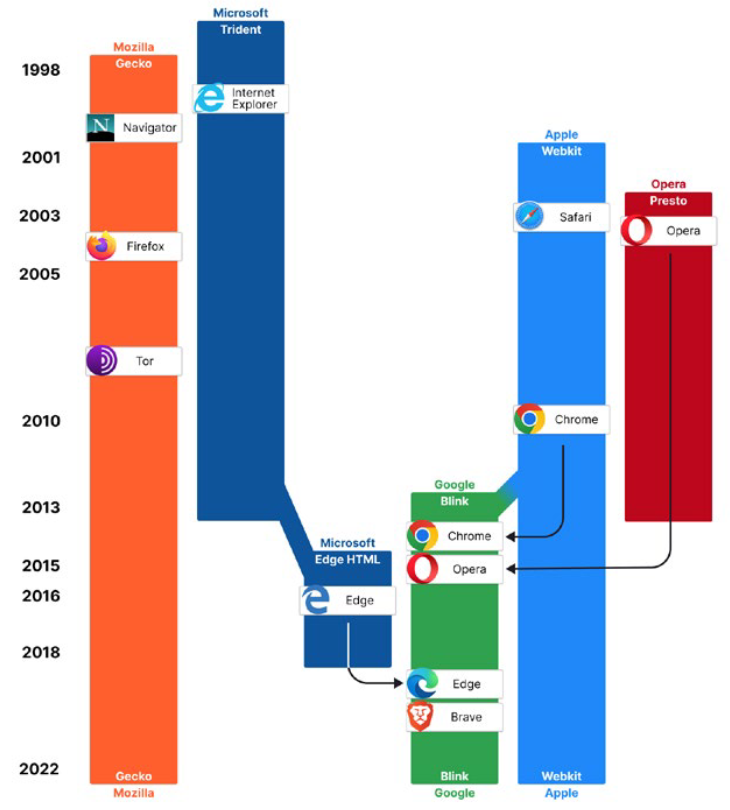
Mozilla pointed out in the report that “giants” including Google, Amazon, Facebook, Apple and Microsoft have built their own “Walled Garden” (Walled Garden), and they guide users in various waysUse the default browser for the respective platform.These actions include restricting the discovery of standalone apps, bundling its own browser with the operating system, and setting it as default on the home screen or shortcut barincrease the complexity of changing the default browser, guide users to set their own browser as the default item in a prominent position, etc.
Obviously, most users will not actively change these default browsers (especially these operating systems can not easily change the default browser), so they have no willTake extra action to find or discover alternatives to lesser-known browsers.
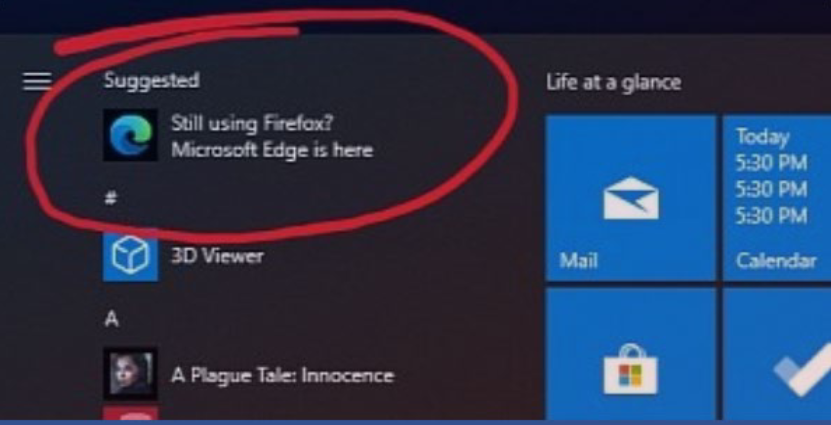
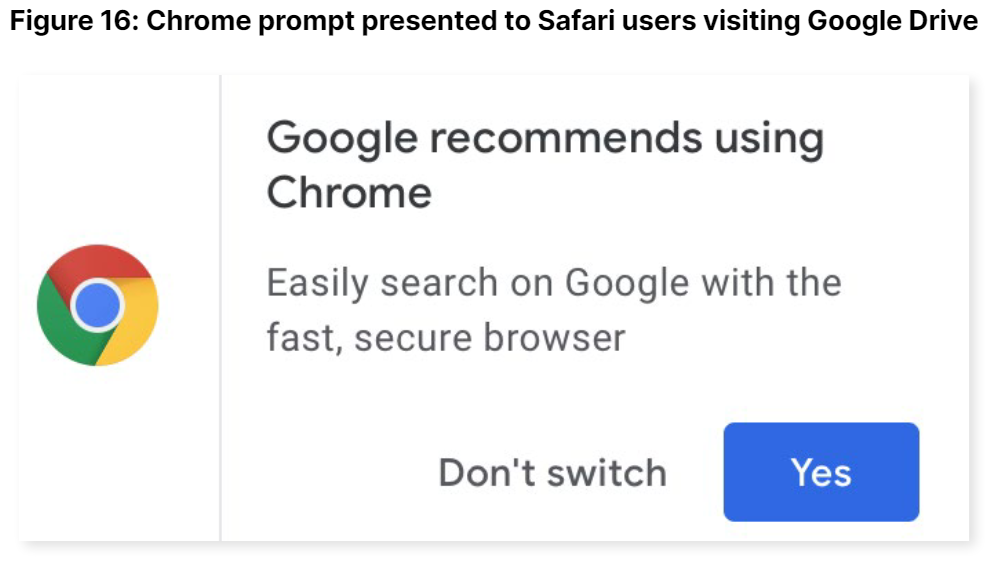
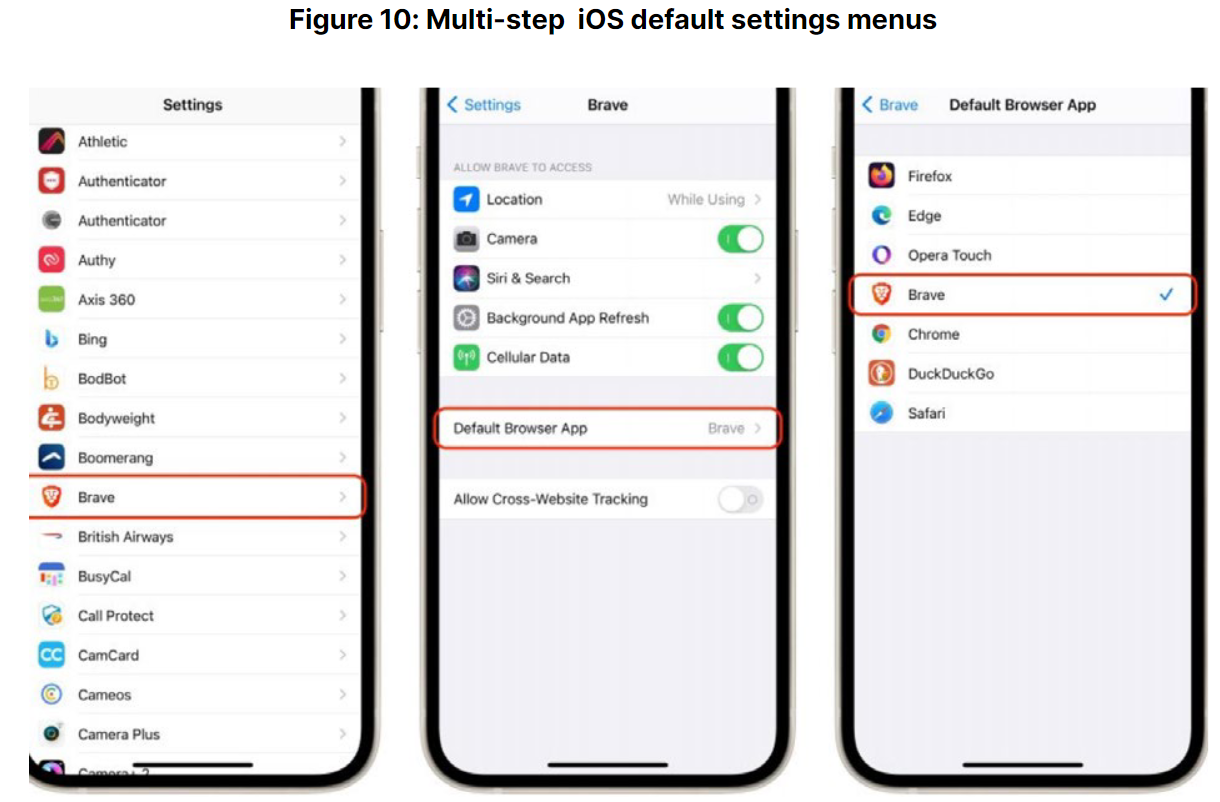
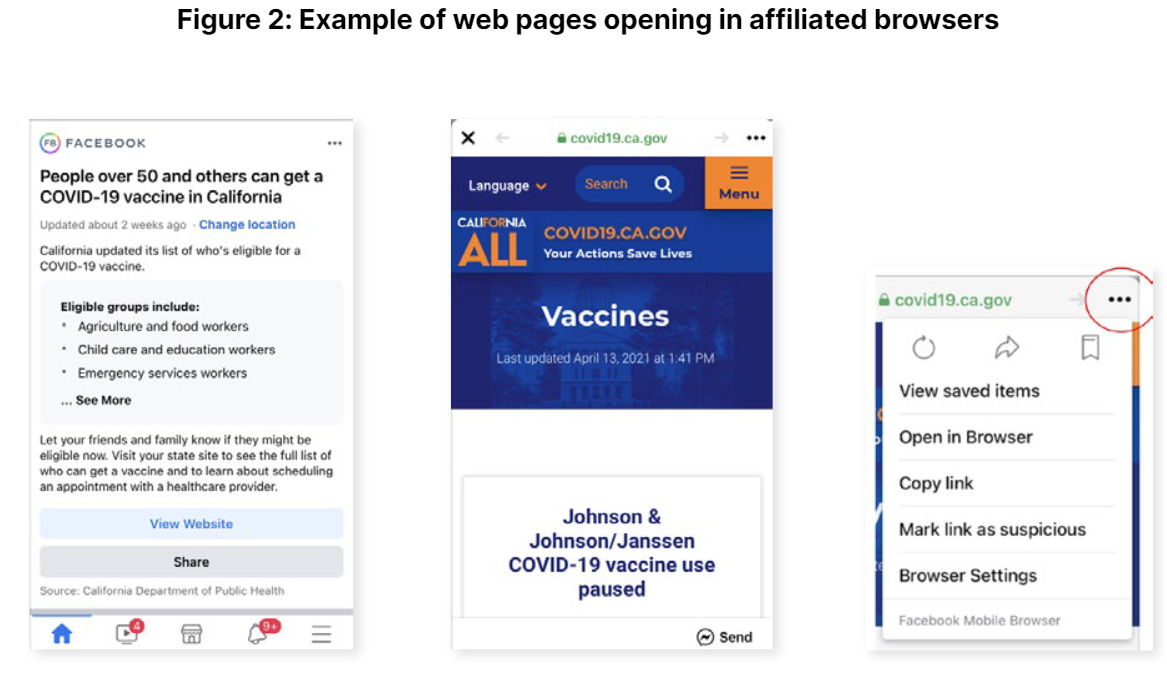
Mozilla also mentioned that Microsoft’s increasingly aggressive approach to Windows is aimed atReversing a user’s decision to use non-Microsoft softwaresuch as reverting the default browser selection back to Microsoft Edge.
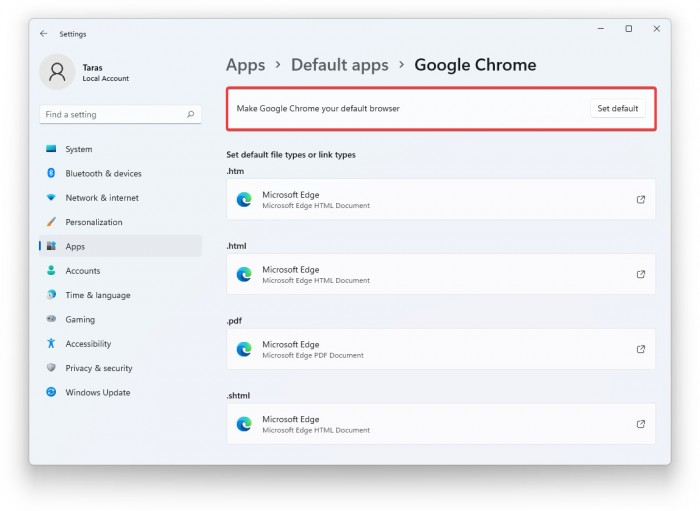
This report lists multiple problems in the current browser market:
- limited or frustrating options: OS developers make it difficult or impossible for users to switch browsers, ultimately eliminating their ability to choose for themselves. It also hinders existing competitors, preventing new products from entering the market and providing more choice.
- lower quality: If users pay zero monetary price (as in the case of browsers), developers may be expected to compete on quality. But without effective competition from independent browsers, users may receive a lower-quality product.
- lower innovation: Related to quality is innovation. Users miss out on developments (such as improved features and functionality). A reduced likelihood of disruptive innovation may be accompanied by a reduction in user choice.
- poor privacy: Products that may leave consumers with forced data sharing, data misuse, or other privacy compromises. These results may suggest that ineffective competition leads to poor quality.
- unfair terms: Without appropriate options, users may be forced to accept terms that are exploitative or unfair.
Mozilla warns that competition in the browser market is critical to ensuring innovation and user choice. More broadly, the dynamism of the open web should be protected from attempts by commercial giants to block it.otherwise the userNot only are you losing the ability to dictate your own online experience, but you’re also getting less innovative, lower-quality products.Rather than having to fight the operating system to maintain their software preferences, its spokesman said, users should have the right to control their online experience and choose the software they want to use — including software that differs from those offered by OS developers.
#Mozilla #fires #tech #giants #accusing #Google #Microsoft #monopolizing #browser #market